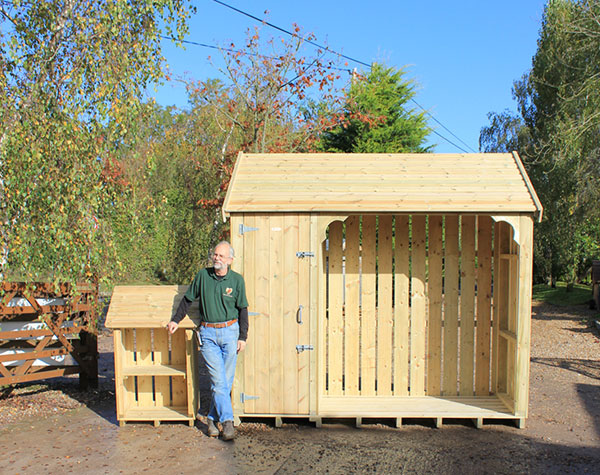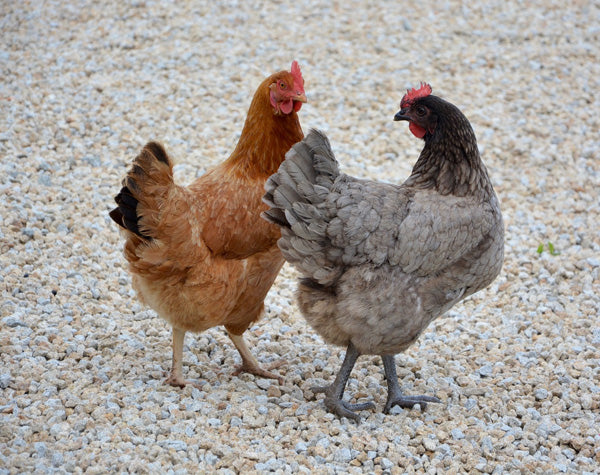Frequently Asked Questions - Log Stores, Logs and Timber
When it comes to all the names and terms used for Firewood, what the different types of wood are, and how they are used, we thought it would be helpful if we explained below the most frequent questions we hear.
What is kindling?
Kindling is small pieces of wood, like twigs, that are used to start a fire because they will catch light easier than larger logs.
What does 'seasoned' mean?
Seasoning of wood is when you allow cut timber, or logs, to be stored to dry out for a season. Wood contains a lot of moisture when freshly cut so it should be stacked in small logs and allowed to dry out, some woods just for a few months, others like hardwoods for 2 years. Seasoned timber burns better, does not spit and gives off more heat.
See our Information Centre for more about Buying & Seasoning Firewood
What are softwoods and hardwoods?
Broadly speaking softwoods are coniferous trees such as pine and fir, i.e. non-deciduous trees. Hardwoods are from broad-leaved deciduous trees (there are exceptions). Softwoods are mainly lighter in weight and less dense because they grow faster and have a simple structure.
Softwoods are widely used commercially because they grow faster and can be dried and processed far more easily than hardwoods. Hardwoods are harder and denser with a complex structure, making it more difficult to dry (season). Hardwoods would (generally) need to be processed when newly felled as once dry they are hard to cut or chop.
There are about a hundred times more types of hardwood tree than there are softwood trees but because softwoods are easy to process and dry, they are the main supply of commercial wood today. This, combined with their speed of growth, makes them far cheaper to use than the hardwoods. Once processed, softwoods tend to degrade (rot) faster than hardwoods when exposed to the weather and water.
To avoid this, softwood used outdoors e.g. shed, log stores, animal housing, should be treated with a preservative or paint to prolong life. Hardwoods, although more expensive, are likely to need less preservative treatment.
For more information see What are Harwoods and Softwoods?
Examples of Softwoods: Pine, Fir, Spruce, Larch.
Examples of Hardwoods: Cedar, Oak, Ash, Beech, Birch, Elm, Apple.
Why do you use pressure treated (tanalised) timber for your Log Stores?
All untreated timber is vulnerable to insect and fungus attack. Our timber is treated with Tanalith-E®, a modern anti-rot and fungal pressure treatment with proven and certified performance against fungal and insect attack. Complies with BSEN599-1/BS8417. See also What is Pressure Treated Timber
Why do you use stainless steel fixings?
Modern timber preservative treatments use a copper base solution. If galvanized fixings are used, a galvanic reaction occurs and they corrode within a few months.
This occurs in natural cedar and oak constructions too. The brown streaks seen on fencing for example, and the majority of sheds using tanalised timber, is a sign of their fixings corroding. Stainless steel is the only long term solution in tanalised timber.
Why do you use decking screws for your framing?
Decking screws are plated (galvanized or electrolised) and then a powder paint coat is applied preventing galvanic corrosion.
Why buy a wood store from Dorset Log stores?
Our Log Stores are designed and made by us here in Dorset with local craftsmen. We are an established firm (over 22 years old) with a reputation for quality in construction, finish and unrivalled customer service.
About Dorset Log & Garden Stores.
Doesn't tanalised timber contain 'nasties' such as cadmium and arsenic?
No. Modern treatments such as Tanalith-E® are a combination of copper salts (which give new timber a green hue) and water-based fungicides. When the timber has dried after being treated it is completely safe to handle, and safe for animal housing too.
For far more detailed information, visit our page on Timber Facts, Hints & Tips
For any queries, you can Message Us, use the Chat icon on the website (bottom right), or call us on 01300 345229.



